When someone is arrested, bail services provide them with an opportunity to secure their release before their court date. Many use bail bond services as a way of paying a percentage of the full bail amount as payment towards release; but what if someone defaults and doesn’t make payments as promised on their bond? Could a bondsman initiate bond forfeiture proceedings due to nonpayment?
In this post, we will dive deep into bond forfeiture to help individuals understand its meaning for those who have posted bail and whether a bondsman can enforce forfeiture if payments are missed. Furthermore, we’ll go over what surety bond cancellation entails and why understanding your bail bond agreement can prevent serious consequences from emerging – so let’s go deeper into this topic to ensure you understand its workings and the options available to you.
What Is Bond Forfeiture?
Prior to providing an answer to this question, it’s essential that we define bond forfeiture clearly. Bond forfeiture is the legal term used when either a defendant or person who posted bail breaches the terms of their bond agreement by failing to appear as required in court proceedings or paying their bond in full. When bond forfeiture takes place, courts can seize any collateral put up as security against that bond; leaving bond agents or bondsman without recourse should an escrow account become unavailable due to seizing funds put up as security against said bond agreement.

Can a Bondsman Enforce Bond Forfeiture for Nonpayment?
The simple answer is Yes. A bondsman may enforce bond forfeiture if an individual responsible for paying their bond does not make their scheduled payments. A bail bond contract often specifies payment schedules; should the defendant or co-signers not abide by them and fail to make required payments as scheduled, forfeiture may become an option for enforcement by the bondsman.
Bond forfeiture occurs for several reasons. First and foremost, when posting bail for someone, bondsmen are taking on financial responsibility in case the defendant does not appear for court or breaks conditions of release. If scheduled payments do not go as scheduled or they default entirely on their bond contract, bondsmen may need to recover funds, often leading to forfeiture proceedings being initiated against them by law enforcement officials.
Bond forfeiture occurs when collateral used to secure a bond is seized by its bondsman and sold off to cover an outstanding balance. While specific processes vary from state to state, the basic idea remains: bondsmen have legal grounds to take action if the terms of an agreement aren’t being fulfilled in full.
What Happens During Bond Forfeiture?
Bond forfeiture for nonpayment can have devastating repercussions. When action is taken by the bondsman against an individual who failed to pay their bond installment, any collateral placed as security will be used by him/her to cover its cost without recourse for recovery by them or anyone else. Furthermore, the defendant could be subject to legal penalties including:
- Court-Imposed Penalties: When bond forfeiture proceedings begin, courts often become involved. If a defendant breaches bail conditions or forfeits their bond, a bench warrant could be issued and fines levied accordingly.
- Loss of Collateral: If someone has used their home, car, or any other assets as collateral for a bond, forfeiture may allow the bondsman to seize it and this could have long-term financial repercussions for either them or those co-signing the bond.
- Financial Impact: Failing to make payments on a bail bond may cause financial strain and may leave negative marks on your credit report. If it becomes forfeited, any outstanding amounts could be sent over for collection.
- Surety Bond Cancellation: Sometimes defendants or co-signers may attempt to cancel the surety bond entirely, though bond forfeiture would still hold those responsible accountable. Usually, cancellation is only possible once payment for the bond has been fully made and compliance has been achieved as part of any agreements made before it is canceled.
What Can You Do to Avoid Bond Forfeiture?
Avoiding bond forfeiture is crucial if you’ve posted bail for yourself or another, to safeguard money and avoid further legal issues. Here are some practical steps you can take to stop it:
- Keep Up with Payments: Although this may seem obvious, keeping on track with payments is the cornerstone of bond forfeiture protection. Be sure to make all payments on time; if any difficulties arise with meeting them on schedule, notify your bail bondsman right away so he or she can discuss possible arrangements or extensions.
- Communicate With Your Bondsman: If there have been changes to your finances or you find that you cannot meet the payment schedule, speak to your bondsman immediately. They may offer flexibility or create an alternative payment plan that could prevent bond forfeiture proceedings from proceeding further. Having open communication may prevent bond forfeiture actions from being necessary.
- Make Court Appearance: While nonpayment may lead to bond forfeiture, failure to appear for hearings or legal obligations related to the bond may also trigger its forfeiture regardless of payment status. Make sure you show up for all scheduled hearings or legal obligations related to it as missing one may result in bond forfeiture regardless.
- Seek Legal Counsel: If you find yourself struggling to meet payments or dealing with bond forfeiture, consulting an attorney is always wise. Legal representation can provide advice regarding your rights and responsibilities as well as assist with navigating the intricate bail bond process.
What Happens if Bond Forfeiture Occurs?
If bond forfeiture happens despite your best efforts at remaining compliant, it’s essential that you understand your rights. While there may not be many options to avoid the loss of collateral, working with legal representation to minimize its impacts is possible – although you will still be responsible for appearing at court appearances.
Those facing potential bond forfeiture should understand what steps will be involved. Their bail bondsman will inform them about missed payments or court appearances that have gone unanswered, then court involvement could play a part in determining the next steps. Be proactive in handling the situation, and seek legal advice if necessary so your rights are safeguarded.
The Role of a Bondsman in Preventing Bond Forfeiture
As soon as someone is arrested and bail is set, bondsmen often step in to facilitate their release. Bondsmen play an essential part in the bail system by acting as intermediaries between defendants and courts; their fee often represents a percentage of the total bail amount in exchange for helping secure the defendant’s release; this fee serves as compensation for taking on risk by posting it all for them.
Bondsman are not lenders; when posting bail for defendants they assume significant financial responsibility in case the individual doesn’t appear for court as agreed. Because bond forfeiture represents such a substantial financial loss for them and anyone co-signing on their bond. Bond forfeiture due to nonpayment or contract violations can have serious repercussions for both individuals.
To avoid bond forfeiture, the bondsman from Bring ’em Home 24/7 Bail Bonds usually takes steps to ensure both the defendant and co-signer abide by their commitments. These may include:
- Tracking Defendant Movements: Most bondsmen require defendants to report for regular checks with them or install monitoring devices in their surroundings to monitor their movements and ensure compliance with terms of release to reduce bond forfeiture risks.
- Payment Monitoring: A bondsman will carefully monitor payment schedules to ensure all agreed-upon payments are being met on time. In case any payments go uncollected, they’ll make every effort possible to reach out and contact responsible parties so any outstanding issues can be addressed before forfeiture becomes an option.
- Offering Payment Plans: When defendants or co-signers have difficulty meeting payments, many bondsmen will work out an alternate payment plan to prevent forfeiture of collateral. Adaptability is key in order to prevent nonpayment leading to loss of collateral.
Can Nonpayment Lead to Legal Action?
Bond forfeiture usually refers to the loss of collateral due to nonpayment; however, in certain instances, it can also lead to more serious legal action. When initiating bond forfeiture due to missed payments, bondsman is entitled to recover all funds paid originally to secure the bond; this may mean initiating legal proceedings against either the defendant or co-signer to retrieve outstanding balances owed to them.
Bond forfeiture can result in civil judgments that damage credit ratings further and lead to garnished wages or property liens, making it essential that those missing payments understand all their ramifications before any issues escalate.
Bond forfeiture can have serious repercussions, including arrest. When forfeiture occurs due to nonpayment, the court can issue an arrest warrant against the defendant – complicating their legal situation and increasing financial strain if cancellation or negotiations with bondsmen aren’t addressed in a timely fashion.
The Importance of Choosing the Right Bail Bond Service
Bond forfeiture can be an emotionally draining situation, so finding the ideal bail bond service is critical to your well-being. Bring ’em Home 24/7 Bail Bonds understands these challenges and strives to offer flexible and reliable services – such as helping you understand payment schedules or helping avoid forfeiture altogether. They take great pride in offering these 24-Hour bail bonds services in Dallas, TX that put the customer’s best interest at heart.
Trustworthy bail bondsmen provide expert 24-Hour bail bonds services in Dallas, TX to prevent bond forfeiture and ensure you understand your responsibilities clearly. In addition, they can assist with the surety bond cancellation when necessary and offer options to those struggling financially.

Final Words
Dealing with a bail bond can be daunting, and nonpayment is always a potential threat. By understanding how bond forfeiture works and taking proactive steps to prevent costly errors from happening again – such as making timely payments to your bondsman and fulfilling court requirements – you can avoid forfeiture risk altogether for an easier experience overall.



